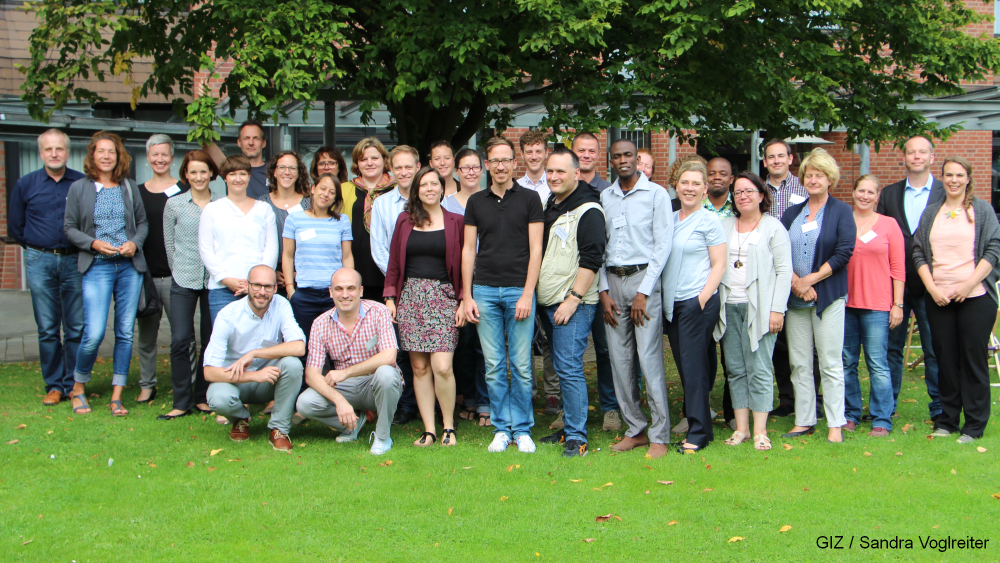
The experts of the “rapid deployment expert group to combat health threats” at a pre-deployment training. | Photo: Sandra Voglreiter / GIZ
In case of possible outbreaks of serious diseases the “rapid deployment expert group to combat health threats” – the SEEG in German – enables a quick set up of the necessary experts to be sent to the crisis area for advice and support of the local helpers. The IGB provides the expertise for water-related problems such as water quality issues, flood hazards, flooding and drainage. These points are important in cases of waterborne diseases and the prevention of future outbreaks.
A possible scenario:
Persistent drought followed by floods, livestock in the flood zone, and insufficient medical care with inadequate laboratory equipment and capacity – this combination of factors could lead to the onset of Rift Valley fever. In such a case, it is important to have an interdisciplinary group of experts that can examine the situation from different angles to provide holistic assistance. Water-relevant questions would be, for instance, the assessment of the current flooding situation and its duration, the spatial-temporal prediction of floods, their avoidance and long-term forecasts in the course of climate change.
Recent experiences in epidemic areas such as the Ebola crisis 2014/2015 have shown that a faster response is required to curb disease outbreaks. As a German contribution, the German Federal Ministry for Economic Cooperation and Development (BMZ) has established the SEEG within the German Corporation for International Cooperation (GIZ). Further information on SEEG >




